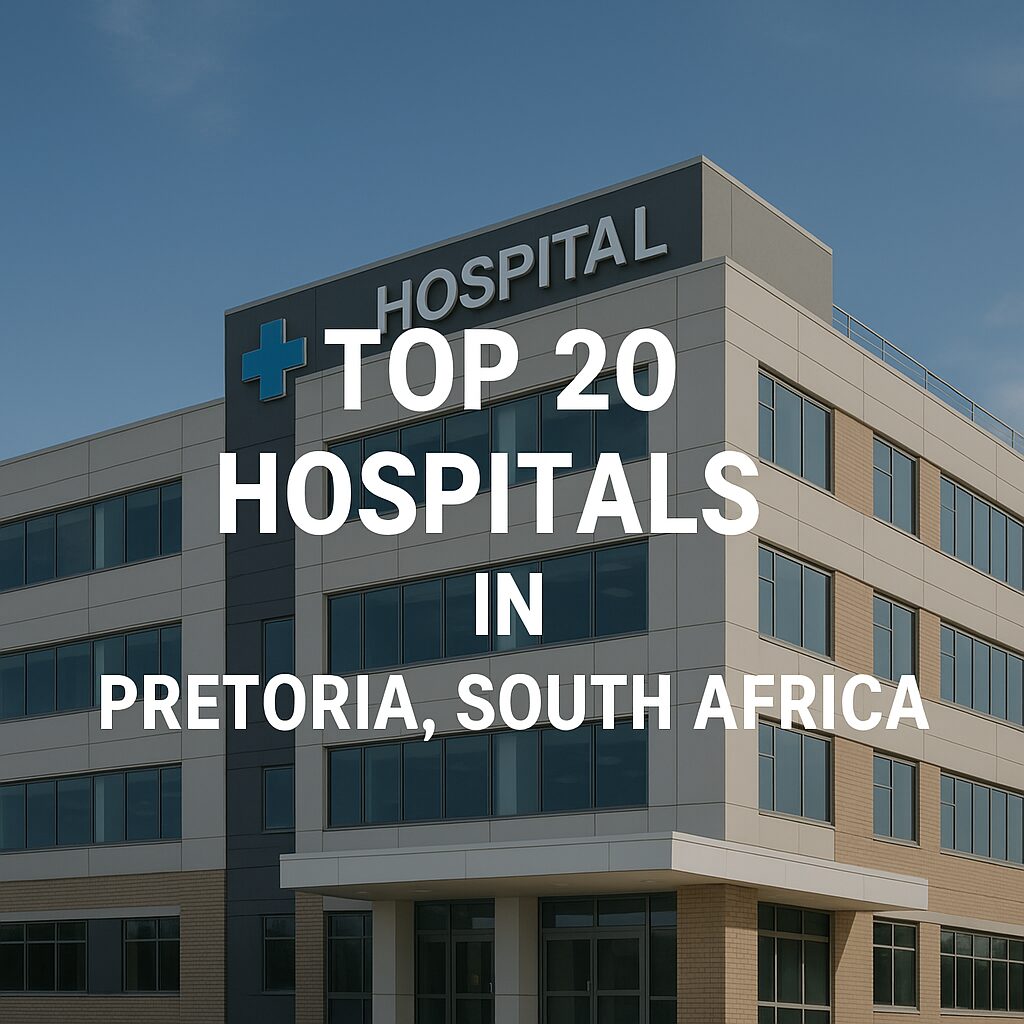Looking to modernize your Hospital, Lab or Clinic?
Hospi is trusted across 25 Indian states for billing, EMR, lab reports, automations & more.
Introduction
Pretoria, the administrative capital of South Africa, is home to a robust and diverse healthcare ecosystem. For residents, expatriates, and medical travellers alike, choosing the right hospital matters. Whether you’re seeking emergency care, specialised surgery, maternity services, or rehabilitation, Pretoria offers a wide spectrum of reputable institutions. This article profiles the top 20 hospitals in Pretoria — private & public — highlighting their strengths, specialities, and what sets them apart, so you can make informed decisions about your healthcare journey.
We also provide an extensive FAQ section (50 + questions) to address your concerns: from how to choose a hospital, insurance issues, cost implications, and what to expect when receiving care in Pretoria.
Ranking Criteria & What to Look for in a Hospital
Before diving into the list, it’s worth outlining our criteria and factors you should consider when selecting a hospital.
Key Factors
- Accreditation & Quality: Hospitals with internationally recognised standards, strong patient feedback, and transparent outcome data tend to deliver better care. For instance, the Discovery Health annual survey has listed some Pretoria hospitals among the country’s top 20. (compsol.co.za)
- Specialities & Capabilities: Does the hospital offer the specific services you need (cardiac, oncology, neurosurgery, maternity, etc.)?
- Facilities & Technology: Modern theatres, ICU/HDU units, advanced imaging (MRI, PET-CT), hybrid operating theatres, surgeon teams. Example: Life Eugene Marais Hospital boasts 14 theatres, a hybrid theatre & cathlab. (lifehealthcare.co.za)
- Patient Experience & Location: Ease of access, emergency service availability, visiting conditions, language, comfort.
- Public vs Private: Public hospitals serve large populations and may offer lower cost care, but private hospitals often provide quicker access and more luxury amenities.
- Reputation & Awards: Awards and patient-surveys matter — they reflect trust and outcomes. Example: Netcare Pretoria East Hospital was voted top hospital in Gauteng in a Readers’ Choice award. (netcare.co.za)
Using these factors, we present the list of top hospitals in Pretoria (in no strict numeric order of ranking).
Top 20 Hospitals in Pretoria
1. Zuid‑Afrikaans Hospital

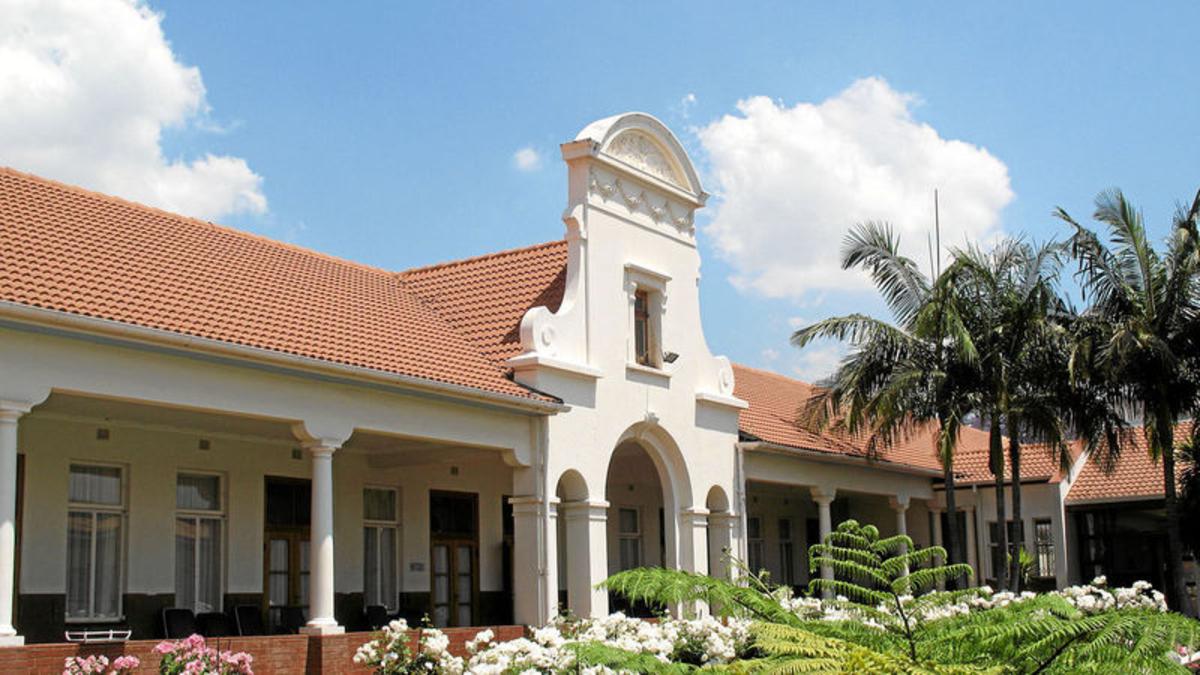
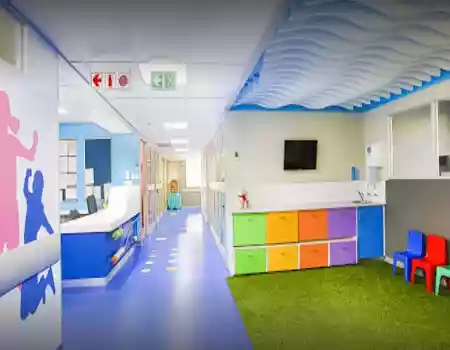



- Founded in 1904, this private non-profit hospital in Pretoria is well-regarded for combining tradition and innovation. (Wikipedia)
- It offers multi-specialty services including cardiology, orthopaedics, general surgery and maternity. (My Hospital Now)
- Why it stands out: long history, personalised care, good reputation in patient surveys.
- Ideal for: Private patients seeking high-quality, established care in a trusted institution.
2. Life Groenkloof Hospital
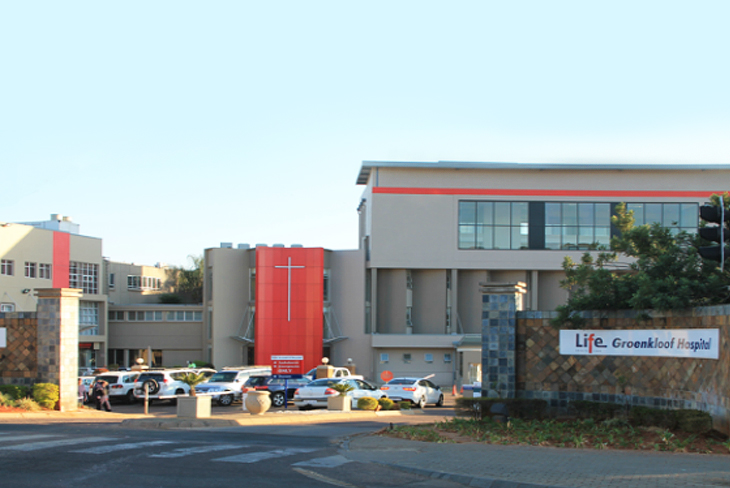





- Located in Groenkloof, Pretoria, part of the Life Healthcare group. (lifehealthcare.co.za)
- Known for advanced surgical suites, multi-disciplinary teams, and strong reputation.
- Good option for complex surgical and specialist care within private sector.
3. Cintocare Private Hospital

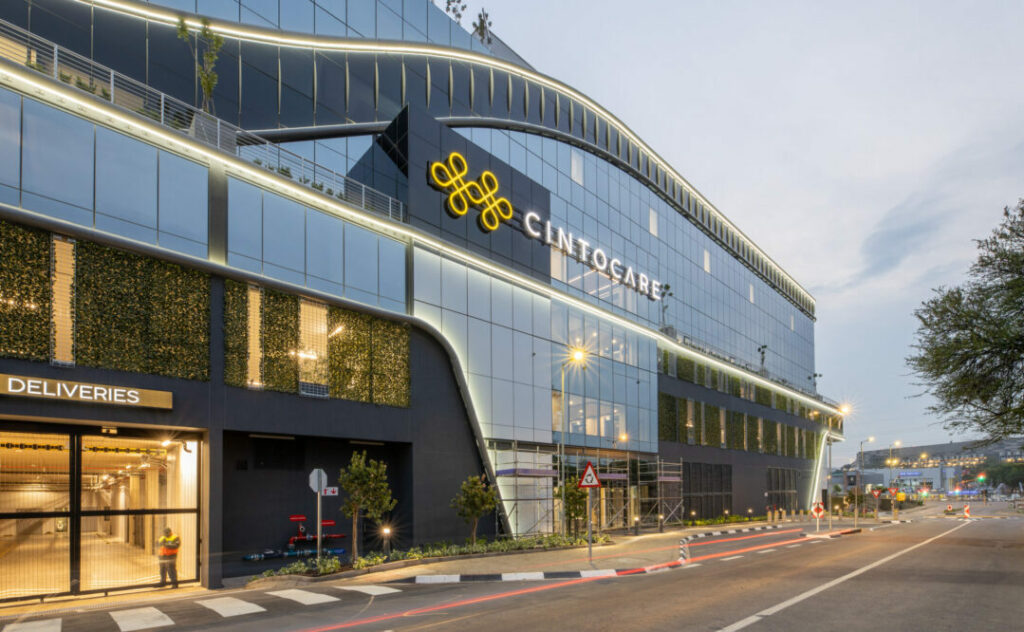
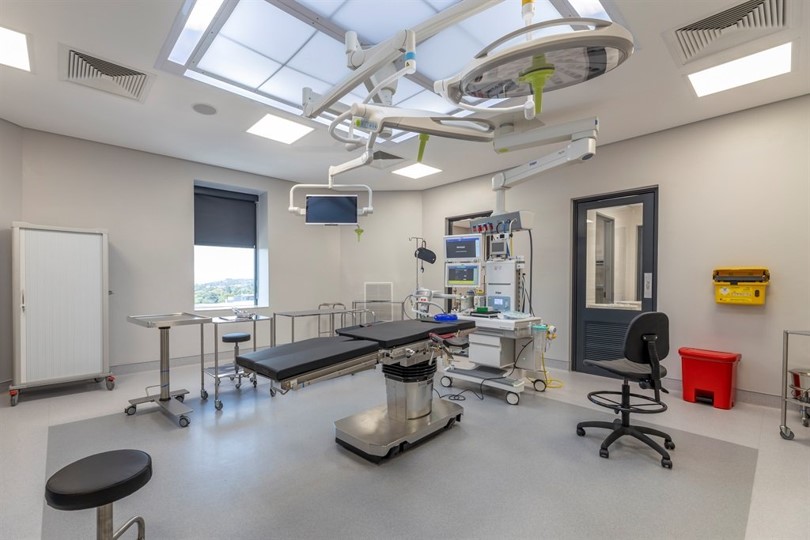
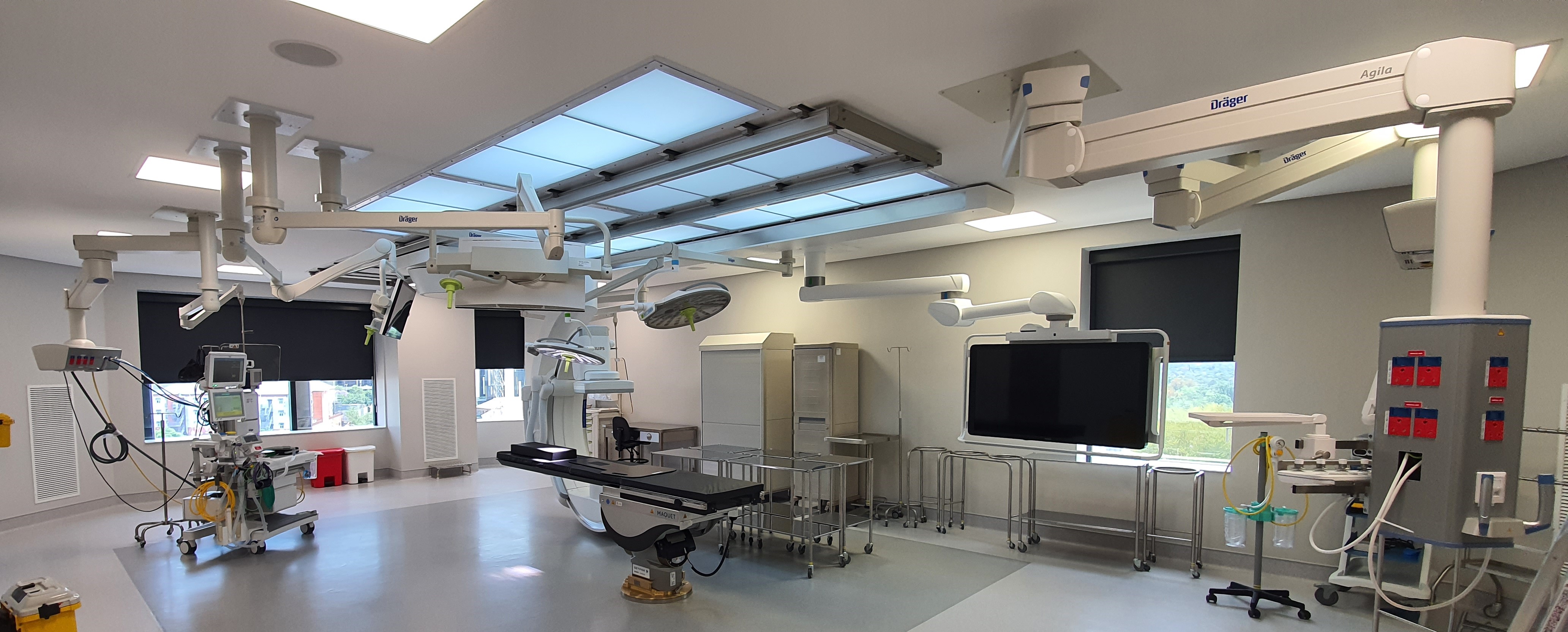
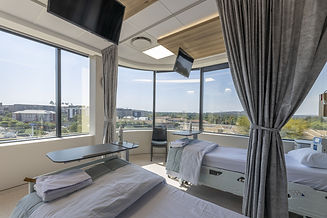
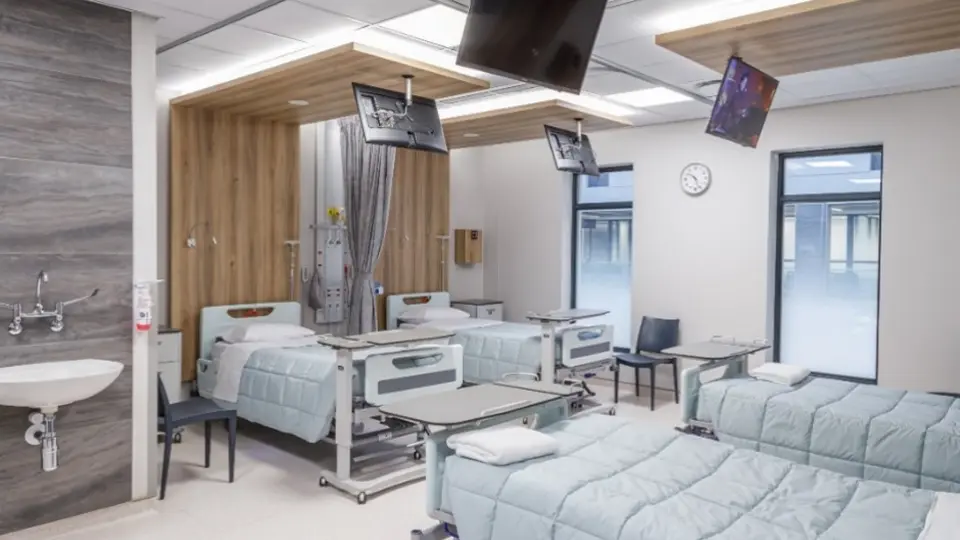
- Notable for being the first Green Star SA Custom Healthcare Design certified hospital in South Africa, emphasising sustainability and innovation. (Cintocare)
- Multidisciplinary team of elite specialists in neurosurgery, orthopaedics, vascular, plastic & reconstructive surgery. (Cintocare)
- Good for: Patients who prioritise advanced specialist care and premium environment.
4. Life Eugene Marais Hospital
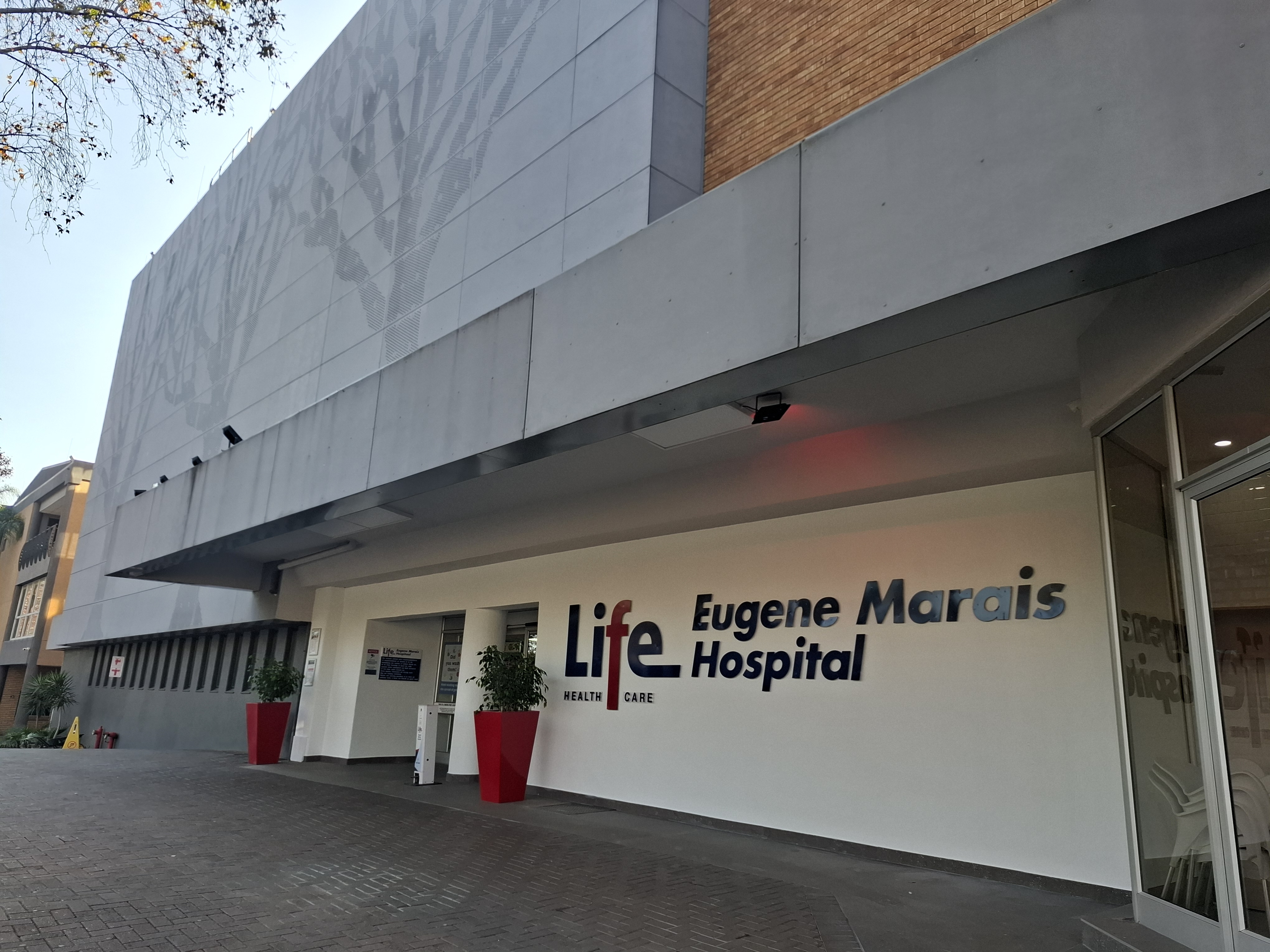

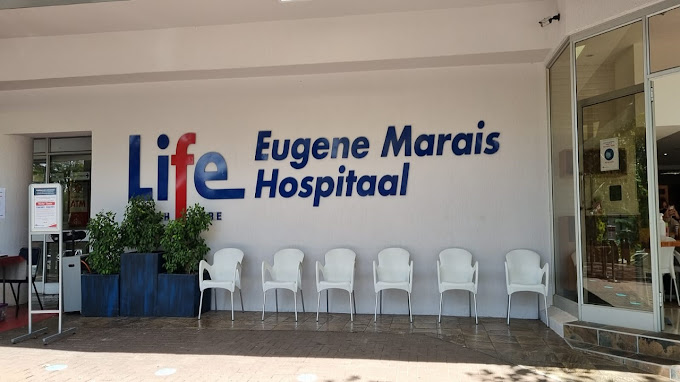
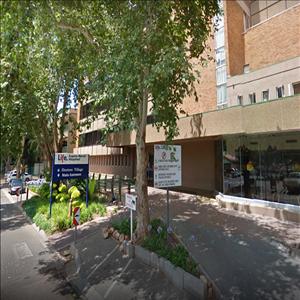


- With ~364-384 beds and 14 theatres, this facility is one of the larger private hospitals in Pretoria. (lifehealthcare.co.za)
- Known for neurosurgery, orthopaedics, oncology (radiosurgery via Varian TrueBeam on Brainlab Novalis platform) and state-of-the-art diagnostics. (lifehealthcare.co.za)
- Good option for patients needing complex surgical care or oncology in a private setting.
5. Mediclinic Medforum
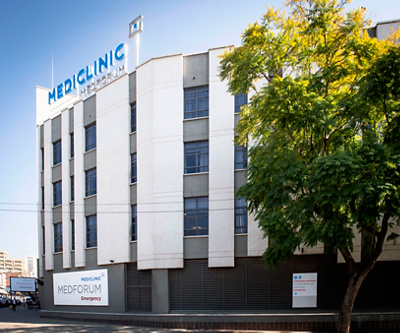




- Located on 412 Francis Baard Street, Sunnyside, Pretoria. (mediclinic.co.za)
- Multidisciplinary medical facility; first in Pretoria to open a cardio-thoracic unit. (mediclinic.co.za)
- Good for: Those needing cardiac surgery or general private hospital care in central Pretoria.
6. Netcare Jakaranda Hospital



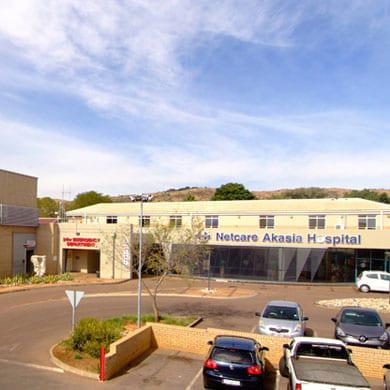


- Highly rated specialist private hospital in Pretoria; listing indicates a 4.7 rating for Pretoria region. (Vaidam Health)
- Good for: Specialist and private hospital care on the east of Pretoria.
7. Netcare Pretoria East Hospital






- Located in Moreleta Park, this hospital was voted top hospital in Gauteng in the 2019 Beeld Readers’ Choice Award. (netcare.co.za)
- 358 beds, with specialist services: internationally accredited haematology centre (largest private blood-cancer practice in Africa), advanced laparoscopic surgery, arthroplasty (hip & knee), sleep & neurophysiology centre, fertility centre. (netcare.co.za)
- Good for: Patients requiring specialist high-end services in private sector, especially orthopaedics and haematology.
8. Life Wilgers Hospital
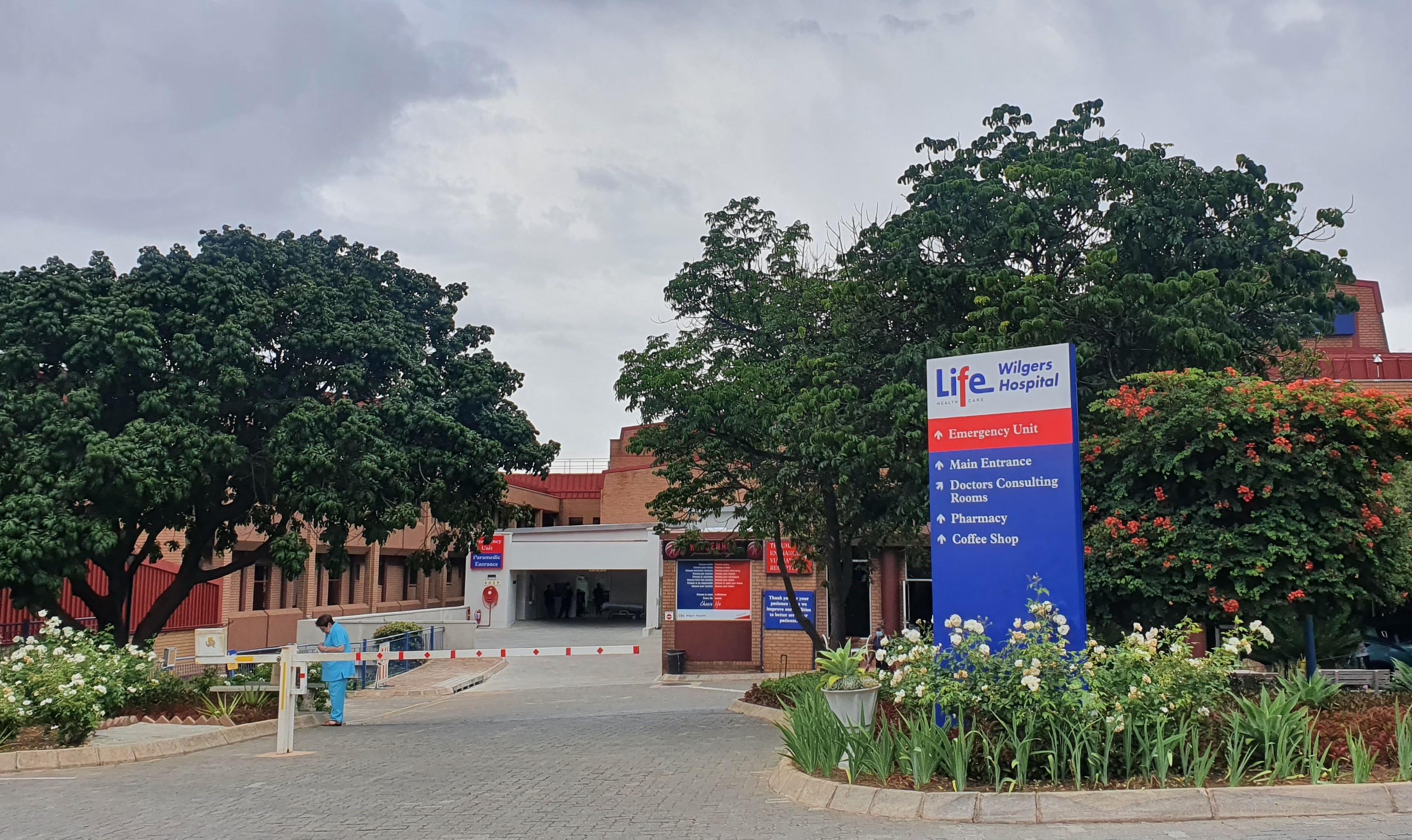
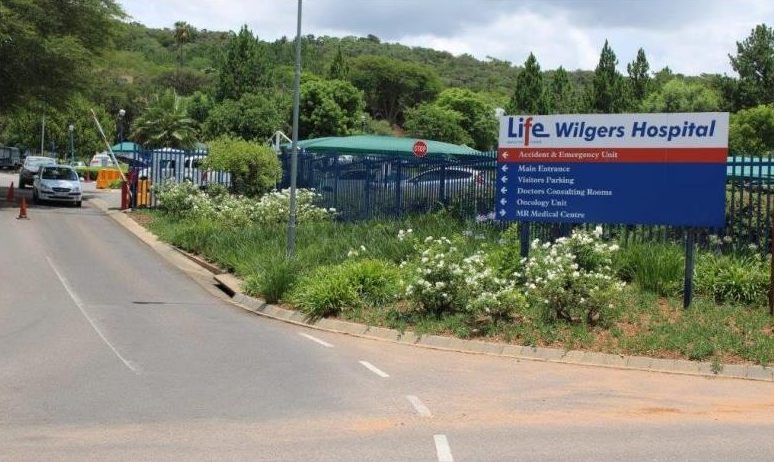


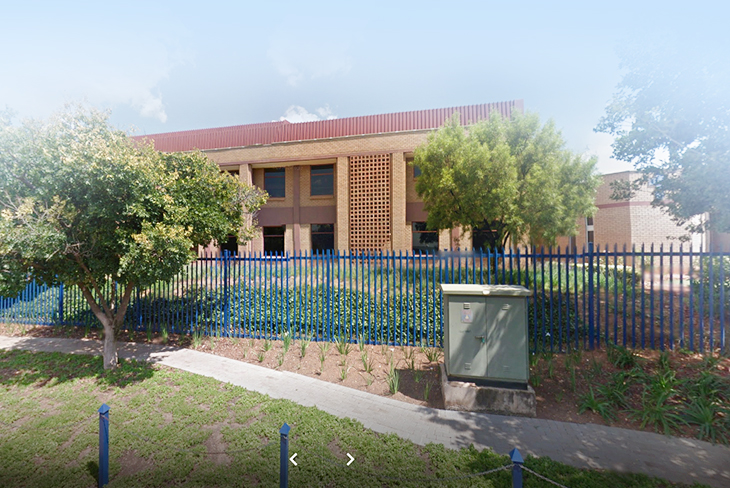
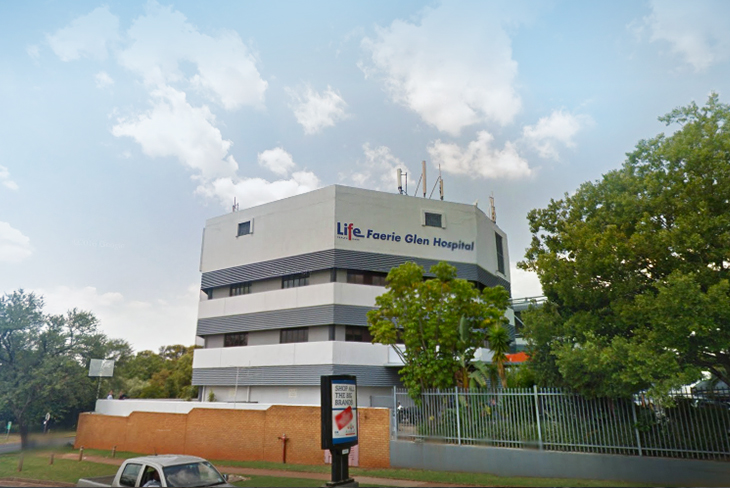
- A private hospital located in Wilgers, Pretoria. Listed among Life Healthcare’s hospitals in Gauteng. (lifehealthcare.co.za)
- Good for: Local private hospital care for Pretoria East; convenient for many residents.
9. Life Pretoria North Surgical Centre
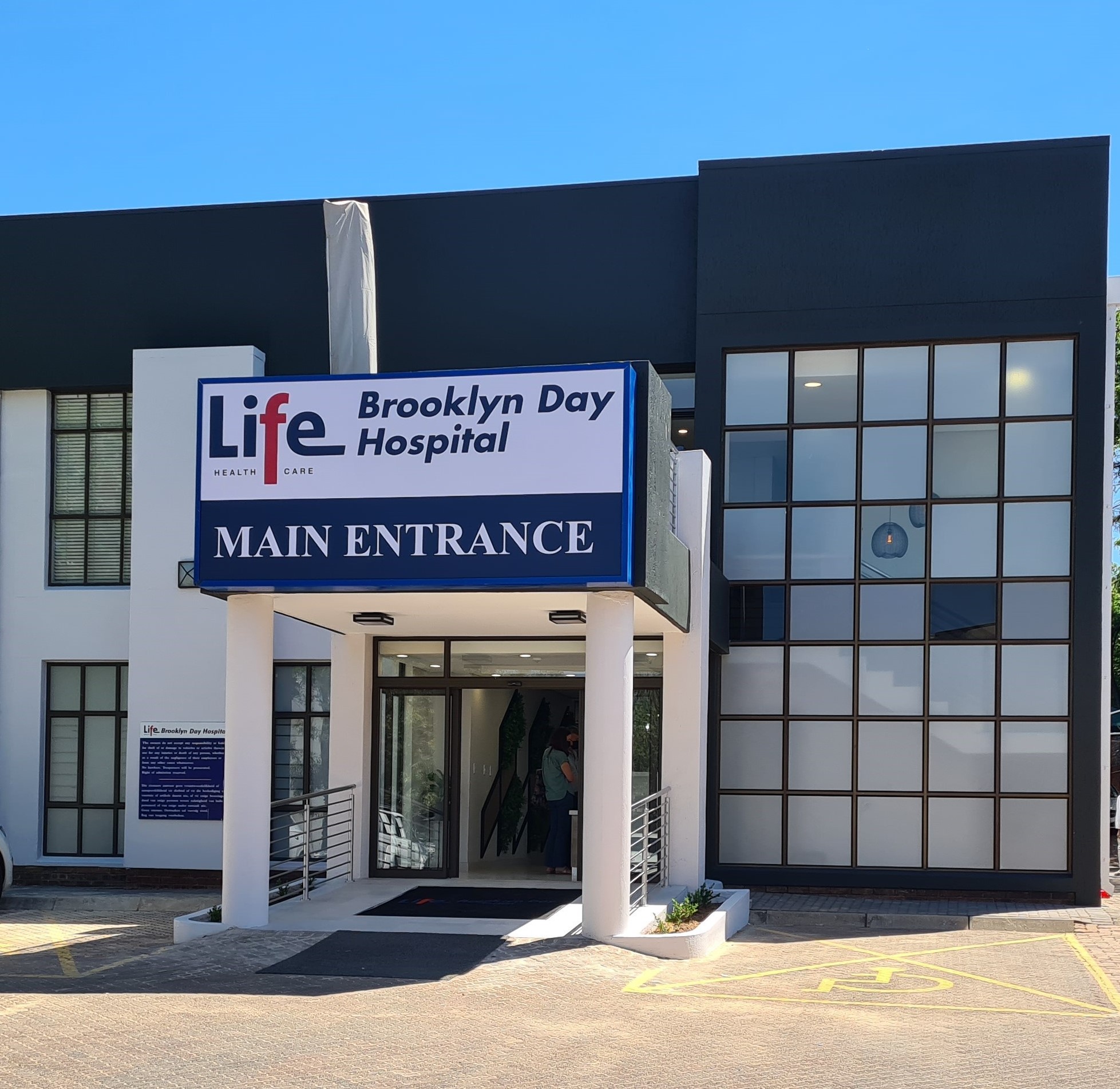



- Located in Pretoria North region, part of Life Healthcare group. (lifehealthcare.co.za)
- Good for: Patients in northern suburbs of Pretoria requiring surgical care.
10. Life Brooklyn Day Hospital


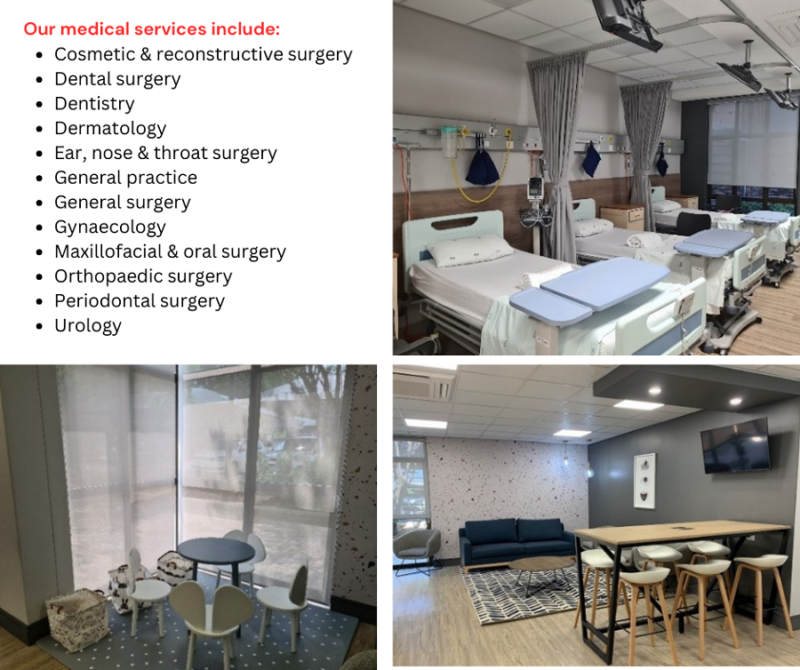


- A day-hospital facility in Brooklyn, Pretoria (private sector). (lifehealthcare.co.za)
- Good for: Day surgeries, minor procedures, fast-turnaround care in private setting.
11. Life Faerie Glen Hospital





- Located in Faerie Glen, Pretoria. Listed among Life Healthcare’s hospitals. (lifehealthcare.co.za)
- Good for: Private hospital care for residents in Faerie Glen and neighbouring suburbs.
12. Kalafong Provincial Tertiary Hospital

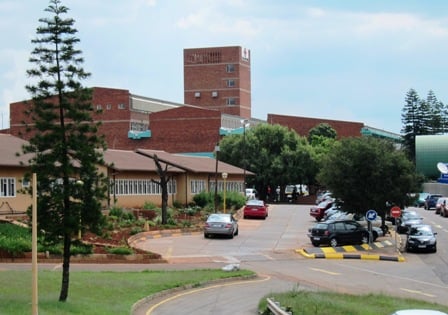



- A major public teaching & tertiary hospital located in Atteridgeville on the western outskirts of Pretoria, affiliated with the University of Pretoria Faculty of Health Sciences. (Wikipedia)
- Good for: Public sector care, training hospital, comprehensive services at government rates.
13. Steve Biko Academic Hospital

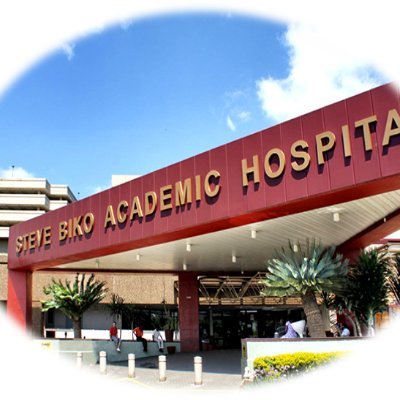
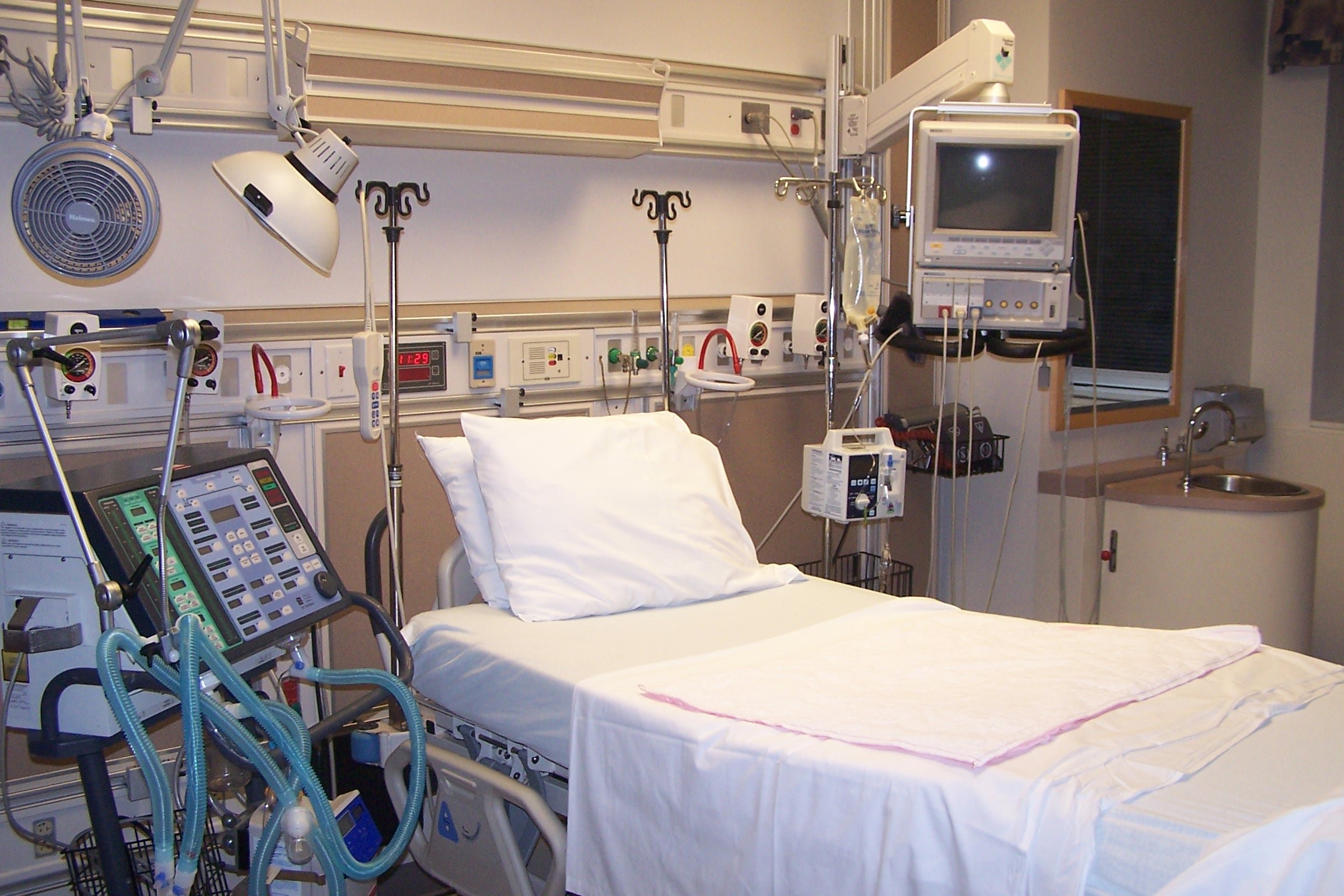
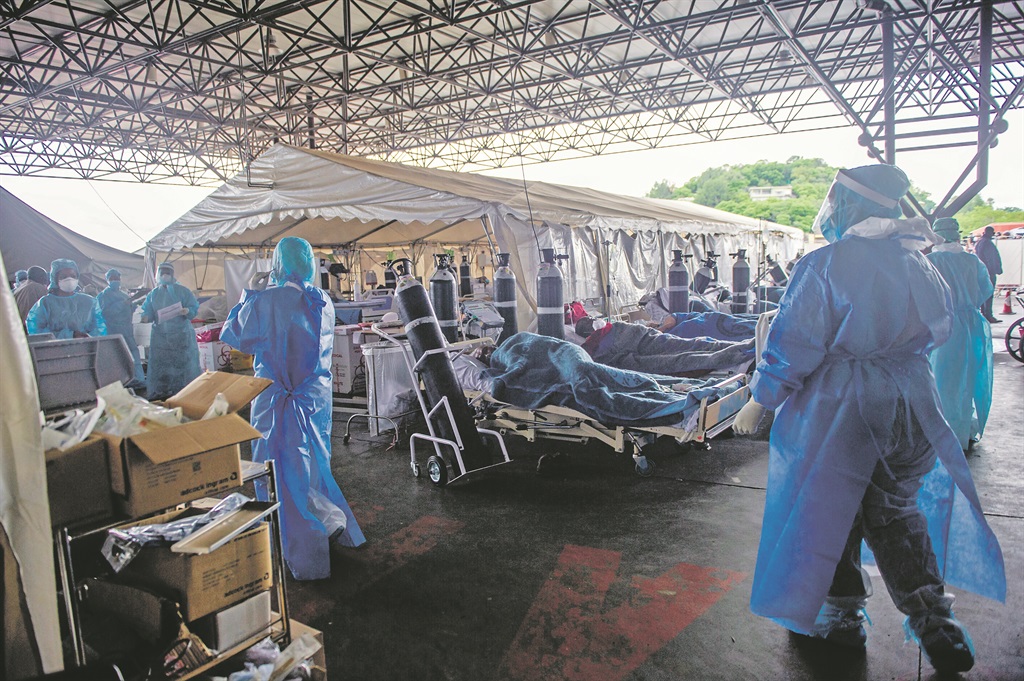


- Located in Prinshof, Pretoria – major tertiary referral hospital and teaching hospital. (Wikipedia)
- Good for: Highly specialised, academic referral care in public sector; extensive emergency/trauma capacity.
14. Dr George Mukhari Academic Hospital
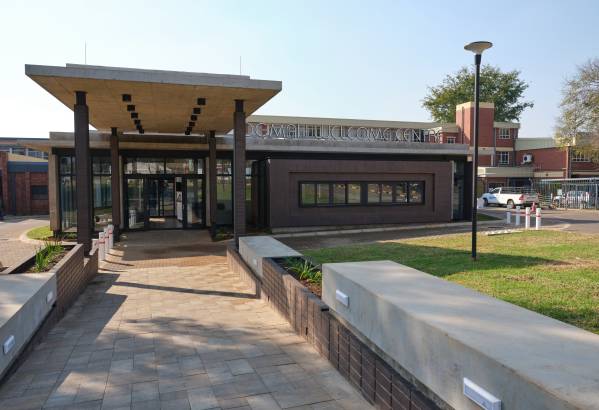
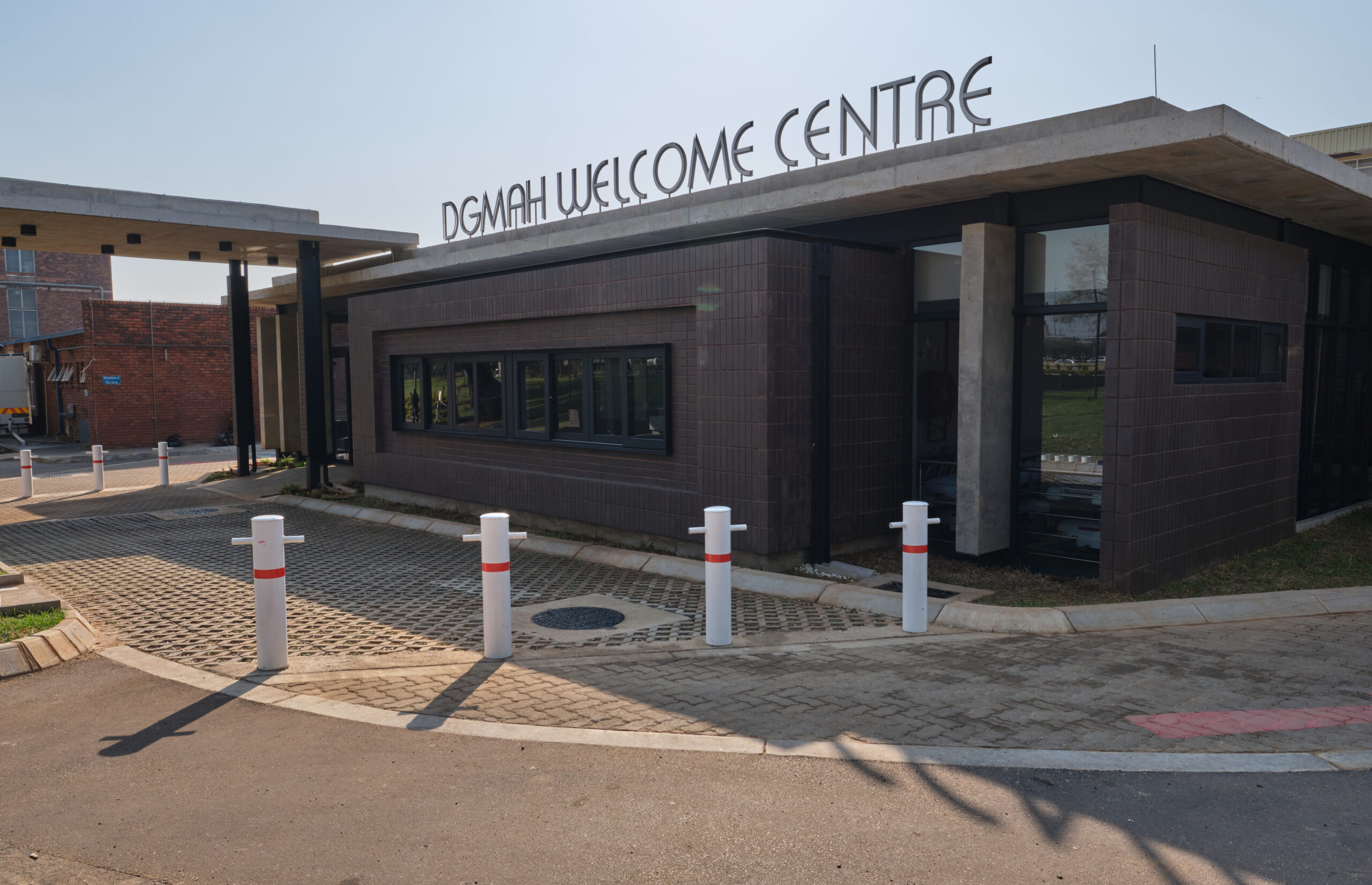

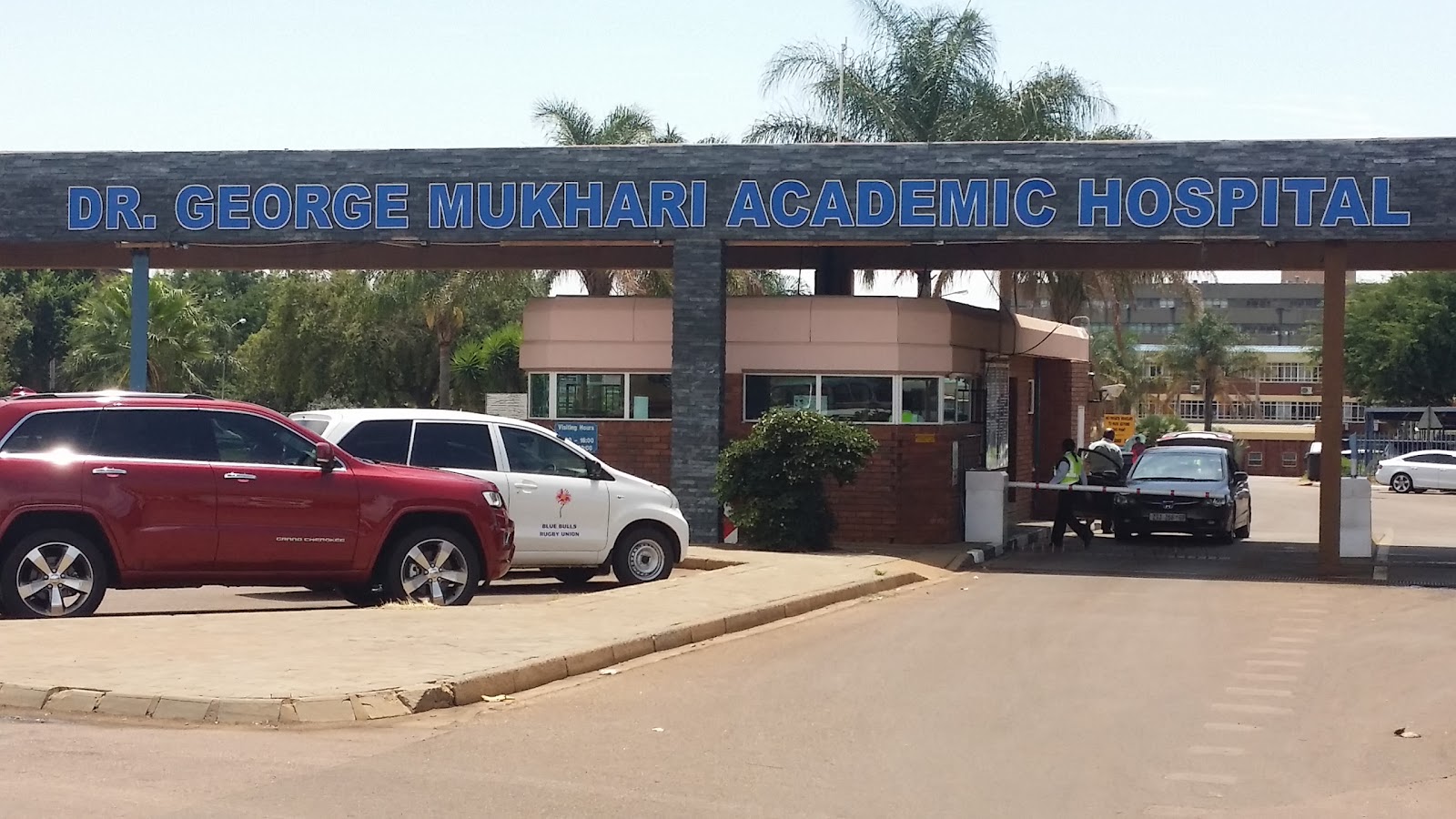
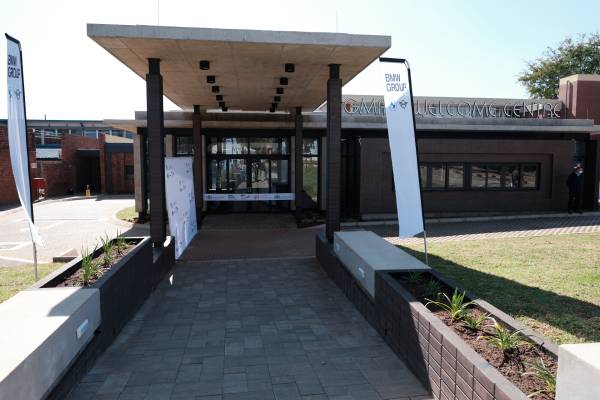

- Located near Ga-Rankuwa (north of Pretoria), this is a large academic hospital affiliated with the Sefako Makgatho Health Sciences University and formerly known as Ga-Rankuwa Hospital. (Wikipedia)
- Good for: Public sector care in northern Pretoria region; teaching hospital with large bed capacity.
15. Tshwane District Hospital

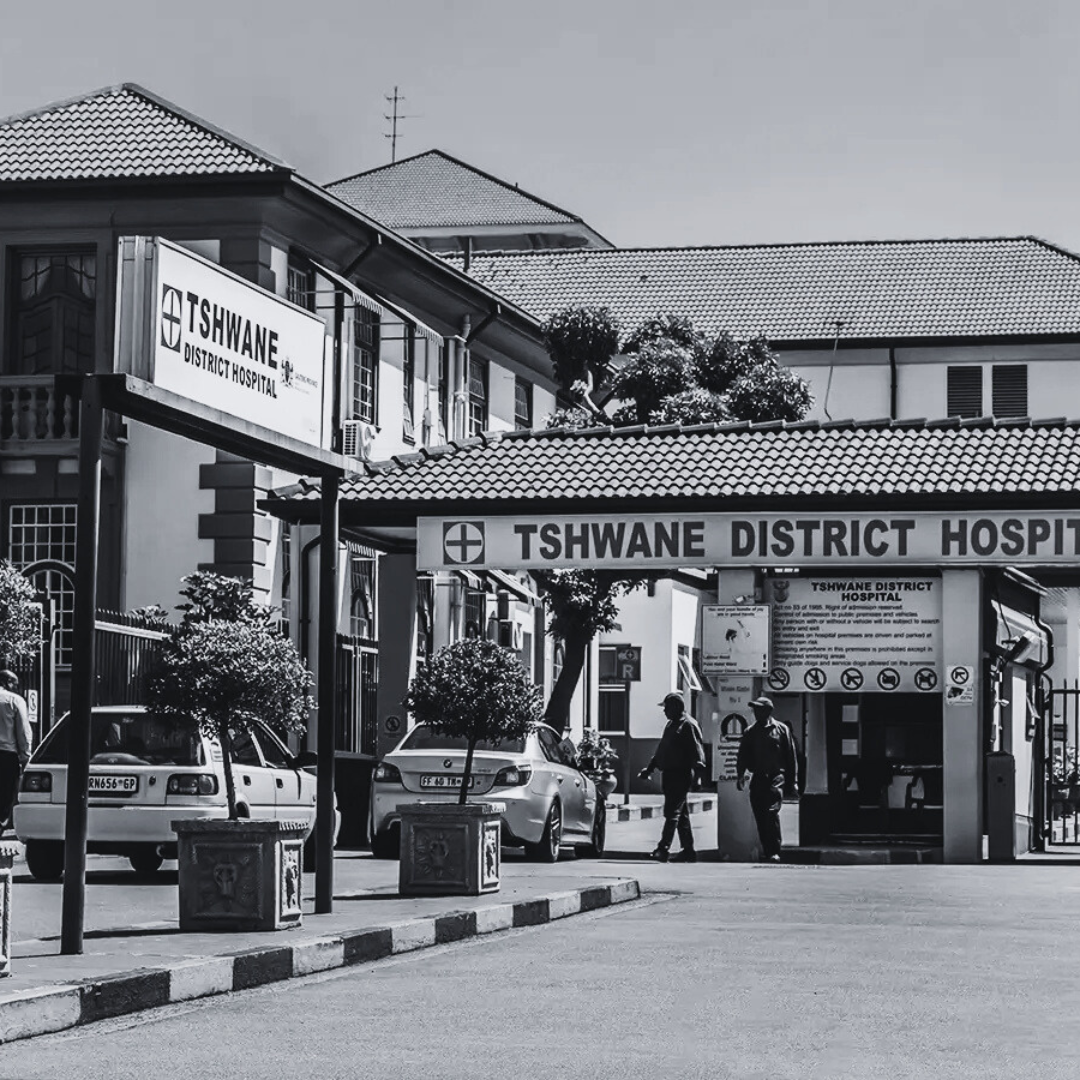
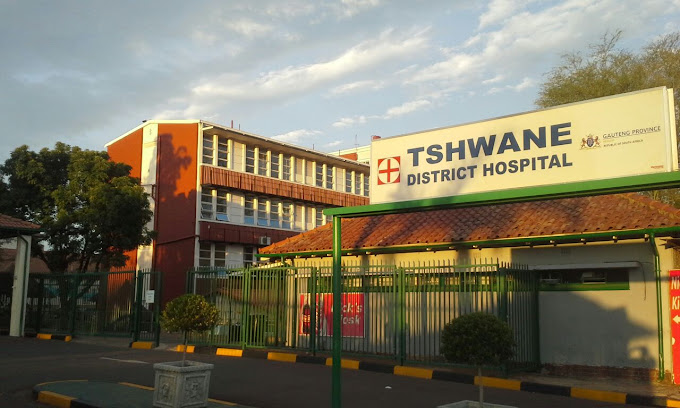

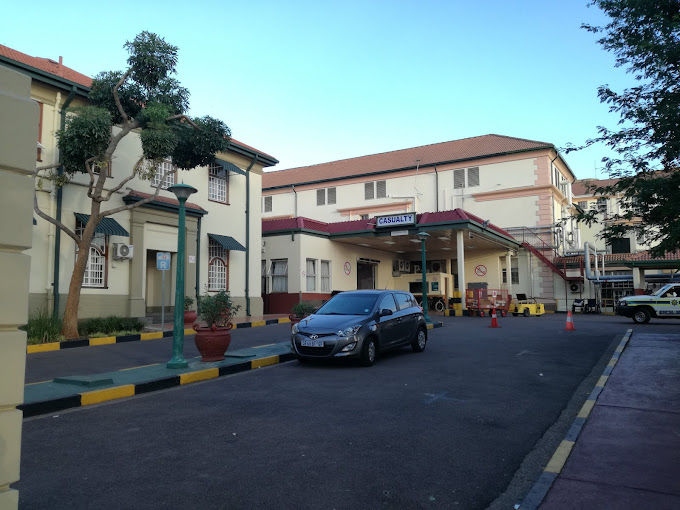
- Located in Prinshof, Pretoria; formerly the building of Pretoria Academic Hospital until 2006. (Wikipedia)
- A public level-1 district hospital dealing with non-critical care.
- Good for: Community level public care and less complex hospital needs at government cost.
16. Denmar Psychiatric Hospital
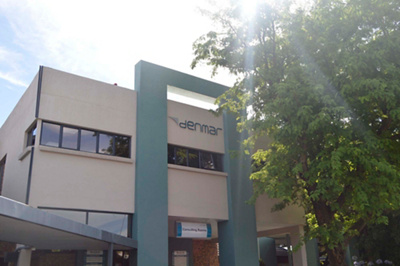




- A private psychiatric hospital in the east of Pretoria (Garsfontein). Established in 1951 as the first private psychiatric hospital in Pretoria. (Wikipedia)
- Good for: Mental health, psychiatric and related services (private sector).
17. Urology Hospital Pretoria
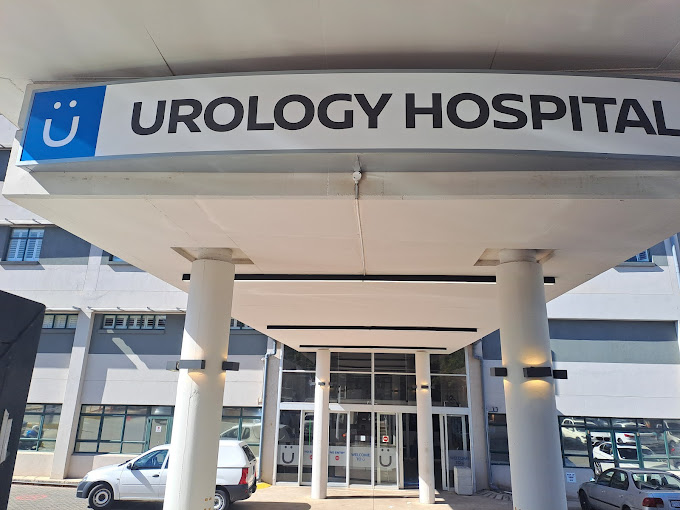
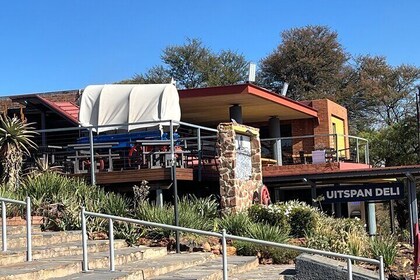
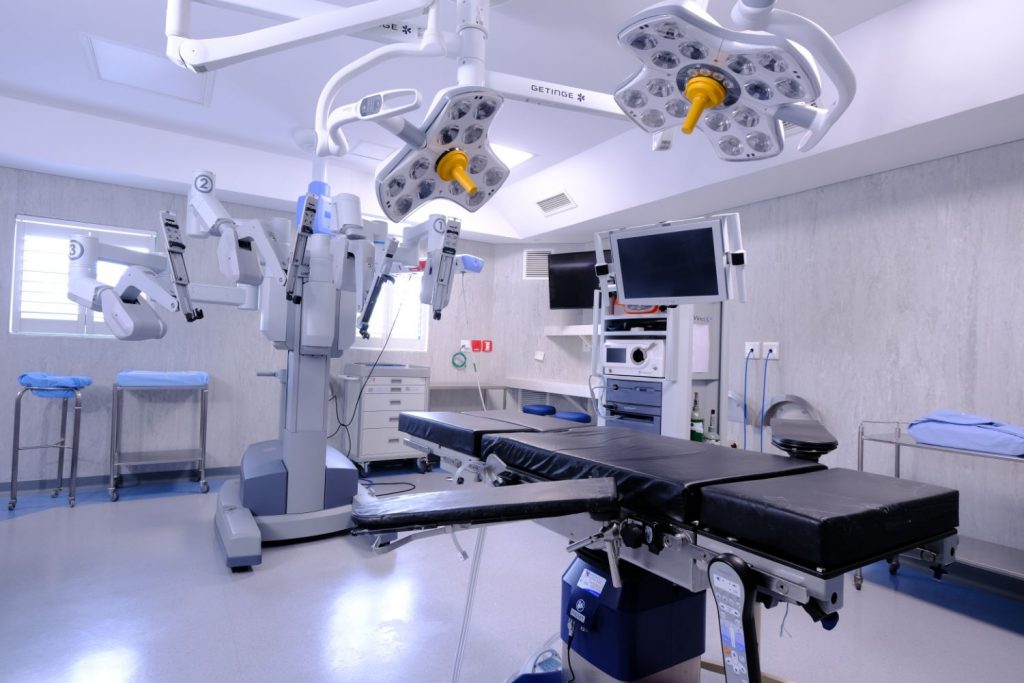



- Specialist hospital in Pretoria (Hatfield area) dedicated to urology, nephrology, gynecology/urogynaecology and related fields. (urology.co.za)
- Good for: Patients seeking urology or nephrology services in a focused specialist environment.
18. Mediclinic Heart Hospital
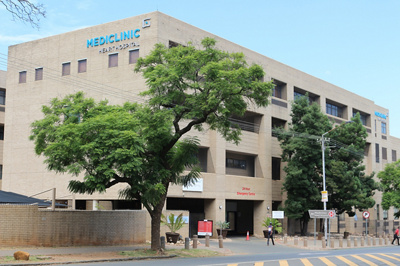




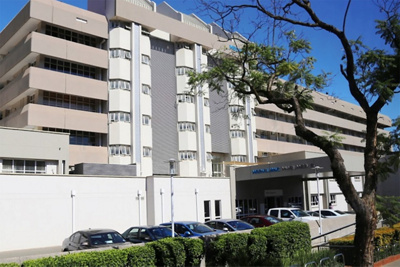
- A private hospital in Pretoria part of the Mediclinic group, specialising in cardiology, heart surgery and related care. Listed among hospitals in Pretoria by Mediclinic. (mediclinic.co.za)
- Good for: Patients with heart-disease requiring specialist private care.
19. Mediclinic Kloof
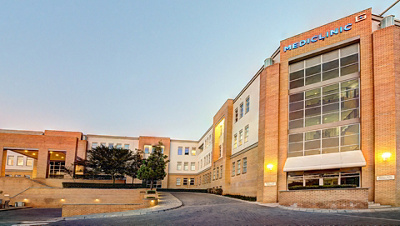



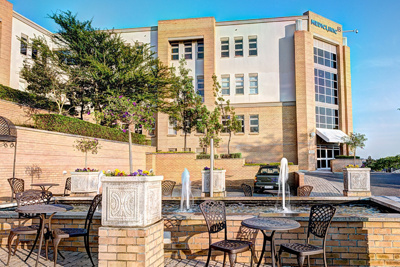
- A private hospital in Erasmuskloof, Pretoria. Featured among the Mediclinic hospitals in Pretoria. (mediclinic.co.za)
- Good for: Private hospital care in the broader Pretoria area.
20. Mediclinic Muelmed
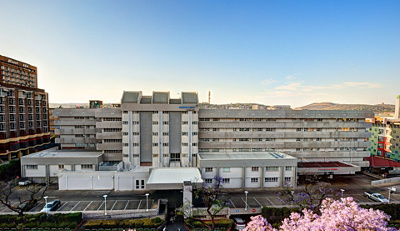
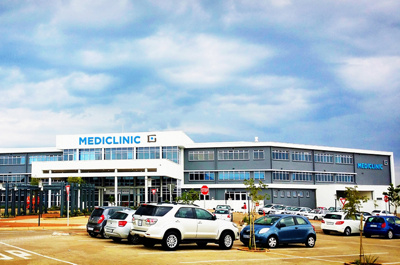




- Located at 577 Pretorius Street, Arcadia, Pretoria. Included among the list of Mediclinic hospitals in Pretoria. (mediclinic.co.za)
- Good for: Centrally-located private hospital in Pretoria for general medical and surgical care.
How to Use This List
- For private care: If you have medical insurance or are willing to pay privately, focus on the private hospitals (items 1-10, 16-20) above.
- For public/cost-sensitive care: The public teaching hospitals (12–15) offer large capacity and comprehensive services, but may have longer wait-times and less “luxury”.
- Match hospital to your need: Cardiac issues → Mediclinic Heart Hospital or Medforum; Oncology → Life Eugene Marais; Urology → Urology Hospital; Psychiatric care → Denmar.
- Check location: Pretoria traffic and access routes matter. Choose a hospital convenient for emergency access or your accommodation.
- Pre-admission and insurance: Especially for private hospitals, pre-admission online and insurance authorisation streamline the process (see Life Eugene Marais example).
- Visit the hospital websites: For latest visiting hours, amenities, specialist lists.
Why These Hospitals Matter for Pretoria’s Healthcare
Pretoria is a key city in South Africa’s national healthcare landscape:
- The presence of major teaching hospitals ensures high-level tertiary care.
- Private hospitals in Pretoria rival international standards — making it a destination for regional medical travel.
- A mix of public/private supports universal access while offering choice.
- The listed hospitals span from day surgery centres to full tertiary referral centres, giving broad coverage of patient needs.
50 Frequently Asked Questions (FAQs) with Detailed Answers
Below is an extensive FAQ section to address common queries about hospitals in Pretoria, costs, funding, private vs public, what to expect, and more.
- Q: How do I choose the right hospital in Pretoria?
A: Start by defining your main need (emergency, surgery, maternity, specialist). Then check if the hospital offers that specialty, check its reputation, location, cost model (public/private), accreditation, and patient experience. Use lists like above for options. Also ask your doctor or insurer for recommendations. - Q: What is the difference between private hospitals and public hospitals in Pretoria?
A: Private hospitals are typically funded by patient fees and insurance, offer faster access, private rooms, and perhaps more comfort. Public hospitals are government-funded, usually more affordable (or free for eligible persons), serve larger populations, and may have longer wait times. Both provide high-level care, especially at major public teaching hospitals. - Q: Are the hospitals listed internationally accredited?
A: Many of the private hospitals strive for international standards and accreditation; for example, Life Eugene Marais offers advanced technology and quality care. The list includes hospitals cited in national “top 20 hospitals” surveys indicating strong standards. (My Hospital Now) However, you should verify current accreditation (e.g., JCI) directly with each hospital. - Q: What kinds of specialties are available in Pretoria hospitals?
A: A wide spectrum: cardiology/heart surgery, neurosurgery, orthopaedics, oncology, urology, maternity/neonatal, psychiatric care, trauma/emergency, day surgery, rehabilitation. For example, Life Eugene Marais offers neuro-spinal rehab, cardiac theatres, oncology radiosurgery. (lifehealthcare.co.za) - Q: What costs should I expect for private hospital care in Pretoria?
A: Costs vary significantly depending on specialty, length of stay, surgery complexity, insurance coverage. As an approximate guide: private hospital bed-rates in South Africa could range from several thousand South African rand per night to tens of thousands for major surgeries plus specialists and ICU. For USD/EUR conversions: 1 USD ≈ ~19 ZAR (as of 2025); 1 EUR ≈ ~20 ZAR — but check current rates. Public hospitals will be lower cost or subsidised for qualifying patients. - Q: Does medical insurance cover hospital stays in Pretoria?
A: If you have local South African medical aid (private healthcare insurance) or international insurance covering South Africa, yes—many private hospitals liaise with insurers. Always check the hospital’s contract with your insurance provider, what is included (bed, theatre, specialist fees), and whether you’ll pay out of pocket for extras. - Q: Can international patients use Pretoria hospitals for medical travel?
A: Yes — some hospitals cater to international patients, especially private hospitals with high standards. Choose hospitals that promote international patient services, have multi-lingual staff, and help with logistics. For example, hospitals listed on “Best Hospitals in Pretoria” websites indicate readiness. (Vaidam Health) - Q: Are there major teaching hospitals in Pretoria?
A: Yes — for example, Steve Biko Academic Hospital is a tertiary teaching hospital affiliated with the University of Pretoria. (Wikipedia) Also, Dr George Mukhari Academic Hospital is a large academic hospital affiliated with Sefako Makgatho Health Sciences University. (Wikipedia) - Q: What should I check about hospital visiting hours and policies?
A: Visit the hospital’s website or call to check visiting hours, ICU/HDU restrictions, number of visitors allowed, child visiting policies. Example: Life Eugene Marais provides detailed visiting hour information. (lifehealthcare.co.za) - Q: How long should I expect to stay in hospital after major surgery in Pretoria?
A: This depends entirely on the surgery type, patient condition, and hospital protocols. For major surgery (e.g., open cardiac, neurosurgery) in a private hospital, several days to one-two weeks is common. Fast-track or day surgery procedures can be 1 day or outpatient. - Q: Are emergency services available at these hospitals 24/7?
A: Yes — major hospitals (both public and private) maintain 24/7 emergency departments. Example: Mediclinic Medforum lists Emergency Department contact and details. (mediclinic.co.za) Always check if the specialty you need is covered outside hours. - Q: How accessible are hospitals in Pretoria in terms of transport and location?
A: Location varies. Many hospitals are located in central or accessible suburbs (Arcadia, Sunnyside, Moreleta Park, Brooklyn). Traffic can be heavy—so for emergencies pick a location with good road access or one nearer to your accommodation. - Q: Do these hospitals have specialised ICU/HDU units?
A: Yes — private hospitals especially invest in ICU/HDU, hybrid theatres, etc. Example: Life Eugene Marais has a neuro-spinal rehabilitation unit and a hybrid theatre. (lifehealthcare.co.za) - Q: What about maternity and neonatal services in Pretoria hospitals?
A: Many private hospitals have well-equipped maternity wards and neonatal intensive care units (NICU). Always verify the level of neonatal care (level 1/2/3) if you anticipate complications. Hospitals such as Mediclinic Medforum and Life Wilgers likely offer such services. - Q: How long does it take to get an appointment with a specialist in private hospitals in Pretoria?
A: For private hospitals, you often can secure appointments within days or a week, subject to the specialist’s schedule. Public hospitals may have longer wait-lists for non-urgent referrals. - Q: Are there hospitals specialised in mental health in Pretoria?
A: Yes — e.g., Denmar Psychiatric Hospital is a dedicated private psychiatric facility. (Wikipedia) Additionally, public hospitals may have psychiatric units. - Q: What about rehabilitation services after surgery in Pretoria hospitals?
A: Many hospitals include physiotherapy, occupational therapy, dietetics and rehab services. For instance, Life Eugene Marais lists ancillary services including physiotherapy and occupational therapy. (lifehealthcare.co.za) If you need extended rehab, verify post-discharge pathways. - Q: Are children’s services and paediatric care available?
A: Yes — many private hospitals include paediatric wards and neonatal units. If you’re seeking paediatric subspecialties (e.g., paediatric oncology, NICU), verify the level and experience of the hospital. - Q: Are there hospitals in Pretoria known for oncology (cancer care)?
A: Yes — Life Eugene Marais has an Oncology Centre with advanced radiosurgery. (lifehealthcare.co.za) Private hospitals in Pretoria may also partner with cancer-care networks. - Q: What languages are services provided in?
A: English is widely used in Pretoria hospitals; Afrikaans is also common in many institutions (for example, Zuid-Afrikaans Hospital). (Wikipedia) For other SA languages, ask the hospital. - Q: Are international traveller/medical tourism services available at these hospitals?
A: Often yes in private hospitals. They may have international patient services, concierge services, help with visas and accommodation. If you are a medical traveller, contact the hospital ahead for specific international patient desk. - Q: Do public hospitals accept private patients (private rooms) in South Africa?
A: Typically public hospitals are for state patients; some may have private wards or fee-paying options but you’ll need to confirm directly. Private hospitals are usually the best choice for fully private care. - Q: How does payment work in private hospitals in Pretoria?
A: Usually: you or your insurer cover costs of hospital bed, theatre, specialist fees, consumables. Pre-admission & authorisation is often required. Additional costs (prosthetics, implants, rehab) may be extra. Always ask for cost estimate and payment policy. - Q: What is the quality of patient experience in Pretoria’s hospitals?
A: According to surveys, hospitals like Zuid-Afrikaans, Netcare Pretoria East, etc., score highly in patient feedback. Example: Zuid-Afrikaans appeared in “Top 20 Hospitals in SA” lists. (compsol.co.za) It remains important to ask for recent patient reviews. - Q: If I’m from another province (or country), how do I arrange care at a Pretoria hospital?
A: Contact the hospital’s admissions or international desk. Provide medical records, referral letter, desired procedure. Confirm bed and specialist availability, cost estimate, insurance coverage or self-pay terms. For surgery, arrange accommodation, pre-admission tests, and follow-up plan. - Q: What about emergency referrals from clinics to these hospitals?
A: For public patients, primary clinics often refer to district hospitals then to tertiary. For private patients, your GP/specialist can refer directly. In emergencies, choose a hospital with 24/7 ER and specialist backup (many listed above). - Q: Are there hospital-bed shortages or long wait-lists in Pretoria?
A: In the public sector especially, high demand can lead to longer wait-lists for non-urgent procedures. Choosing a private hospital or paying privately may reduce wait. Always ask current wait times for your procedure. - Q: Do hospitals in Pretoria offer day-surgery / outpatient procedures?
A: Yes — day hospitals or day-wards in major hospitals handle minor surgeries and procedures with same-day discharge. Example: Life Brooklyn Day Hospital is a day-hospital facility. (see above) - Q: What insurance/medical aid organisations operate in South Africa for private hospital care?
A: Many private hospitals deal with South African medical aid funds (e.g., Discovery, Momentum, Bonitas). If you are an international patient, check if your insurer covers SA care or if the hospital accepts out-of-pocket payments. - Q: Are there language or cultural considerations in Pretoria hospitals?
A: Hospitals staff are used to multicultural patients; English is primary. If you have specific language/cultural requirements (e.g., dietary, religious), inform the hospital ahead of time. - Q: Can I choose my specialist surgeon or doctor in a private hospital?
A: Generally yes in private hospitals: you can request a specific specialist (subject to their availability). In public hospitals, you are usually assigned by the hospital. - Q: What if I require ICU after surgery — which hospitals are suitable?
A: Choose hospitals with dedicated ICU/HDU and high level of specialist support — e.g., Life Eugene Marais, Medforum, Netcare Pretoria East. Check ICU bed availability and specialist cover. - Q: Are there specialised theatres for minimally-invasive or robotic surgery in Pretoria?
A: Some advanced private hospitals offer hybrid theatres and advanced diagnostics (e.g., Life Eugene Marais). (lifehealthcare.co.za) If you require robotic or advanced minimally-invasive surgery, ask the hospital for their capabilities. - Q: What about hospital accreditation for infection control and safety in Pretoria?
A: Major private hospitals follow strict protocols. Accreditation processes, surveys (e.g. by Discovery Health) and patient feedback give indicators of safety standards. Always ask about infection-rates, patient safety programmes, and recent surveys. - Q: Are hospital visits restricted for children or special wards?
A: Yes — many hospitals limit visiting hours and visitor numbers especially in ICU/HCUs or neonatal units. For example, Life Eugene Marais has rules about allowing children under age 12 in certain wards. (lifehealthcare.co.za) - Q: How soon before surgery should I be admitted at a private hospital in Pretoria?
A: For elective surgery, pre-admission often occurs a day or two in advance (or even outpatient pre-admission online). Example: Life Eugene Marais allows online pre-admission. (lifehealthcare.co.za) Day-surgery may require same-day admission. - Q: What happens after discharge — follow-up & rehab?
A: The hospital should provide a discharge plan: summary of care, specialist follow-up appointments, rehab referrals, home-care instructions. If you travel from abroad, ensure follow-up with a local physician is arranged. - Q: Are there hospital-beds reserved for international travellers?
A: Some private hospitals cater to international patients and may have dedicated patient-concierge services. Contact the hospital’s international office to check availability, accommodations, and logistics. - Q: Can I view hospital rooms and wards in advance?
A: Many hospitals provide virtual tours or you can request a guided visit (for non-urgent cases). Hospital websites often show photos of rooms and facilities, helping you pick a comfortable facility. - Q: What about tourism or accommodation for family/friends while the patient is admitted?
A: Private hospitals are often located in suburban areas close to hotels or guest-houses. For family staying with you, ask the hospital about guest accommodation, visiting rules, parking, food options, and local transport. - Q: If I’m self-paying (no insurance), how do I get a cost estimate in Pretoria?
A: Contact the hospital’s billing/finance department and request a “cost estimate” for your specific procedure, including bed-rate, theatre, specialist fees, consumables, and projected length of stay. Always ask for a written estimate and what is included/excluded. - Q: How does the quality of private hospital care in Pretoria compare internationally?
A: Some private hospitals in Pretoria offer care on par with international standards: advanced theatres, specialist teams, state-of-the-art diagnostics and patient services. For example, Cintocare’s certification as first Green Star healthcare design in South Africa emphasises its high standard. (Cintocare) - Q: Are emergency services in public hospitals free or subsidised?
A: In South Africa, public hospitals provide emergency care, but the level of cost-sharing depends on provincial policies and your eligibility (income, residence). If you are not a South African citizen/resident, confirm costs ahead of time. - Q: What is the role of nursing and allied health (physio, OT, dietetics) in Pretoria hospitals?
A: These teams are integral to patient recovery. For instance, Life Eugene Marais lists biokinetics, dietetics, occupational therapy & physiotherapy as ancillary services. (lifehealthcare.co.za) Check that the hospital includes these services if you anticipate significant rehab. - Q: How safe is travelling to Pretoria for medical care?
A: South Africa has safe, modern hospitals in the private sector which met international standards. As with any travel, ensure you arrange reputable transport, accommodations, hospital affiliations, and monitor local safety advisories. - Q: What documentation will I need for admission in a private hospital?
A: Generally: referral letter from your GP/specialist, insurance authorisation (or payment guarantee), ID/passport, medical history & test results, contact info for family/next-of-kin, admission forms. For international patients, visa/immigration documents may apply. - Q: Can I transfer from one hospital to another in Pretoria if needed?
A: Yes—both public and private sectors allow transfers, depending on capacity, insurance arrangements and medical need. If you’re initially at a general hospital and need tertiary care, the treating doctor will facilitate a referral and transfer. - Q: What about after-hours or weekend care in these hospitals?
A: Major hospitals maintain 24/7 emergency services and after-hours specialist cover. If your procedure or emergency occurs outside office hours, confirm availability of ICU, theatres and specialists. - Q: How do I check the reputation of a hospital in Pretoria?
A: Look for recent surveys, recognitions (e.g., Readers’ Choice), patient reviews (online forums), quality indicators (mortality, readmission rates), accreditation, and specialist credentials. The hospitals listed above have many such indicators. - Q: What should I ask when I visit or call a hospital ahead of admission?
A: Here’s a checklist:
- Is the specific specialty/surgeon available on my preferred date?
- What is the estimated cost for my procedure (bed, theatre, specialist, implants, rehab)?
- Which insurance funds or self-pay options do you accept?
- What level of ICU/HDU is available?
- What are Victorian visiting hours and visitor policies?
- What language and translation services are available?
- What accommodations are nearby for family?
- What are pre-admission requirements (tests, fasting, etc.)?
- What is your discharge & follow-up policy and rehab services?
- Are there any hidden/excluded costs I should be aware of?
Final Thoughts
Choosing a hospital is one of the most important healthcare decisions you’ll make. In Pretoria, you are fortunate to have a broad range of high-quality institutions — from leading private hospitals with advanced facilities to major public teaching hospitals with specialist care. Use the list above as a starting-point, match your individual healthcare needs (emergency vs elective, specialty, budget, insurance) and ask detailed questions ahead of time.
If you are travelling from overseas or another province, planning ahead (referral letters, cost estimation, travel/accommodation) makes the process far smoother. For elective surgery, consider timing, hospital bed availability, and post-discharge follow-up care. For emergency care, proximity and the hospital’s emergency service capability are critical.
Want a quick walkthrough of Hospi?
We offer gentle, no-pressure demos for hospitals, labs & clinics.
Or call us directly: +91 8179508852

